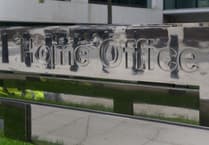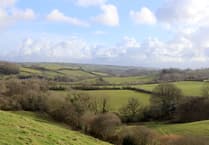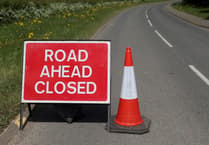A normally shy endangered bat has become a star of the small screen thanks to a live ’bat cam’ link to an undisclosed South Devon roost.
The greater horseshoe bat has seen its numbers plummet in the last century, to the point where it is now under real threat of extinction. The South Hams and Devon more widely are a stronghold of the nocturnal creatures.
Now people can tune into a live webcam of a greater horseshoe bat roost to see hundreds of the rare animals appearing on screen at any one time.
The bat cam is beaming live pictures around the world from a secret roosting site. The camera was specially installed as part of the Devon Greater Horseshoe Bat Project – a five year partnership project made possible through a £785,500 Heritage Lottery Fund grant. The project is led by Devon Wildlife Trust, which is working towards sustaining Devon’s population of these threatened nocturnal animals.
Project manager Ruth Testa said: "The bat cam allows everyone to see what goes on inside a bat roost – something that is not normally possible. By logging on to www.devonbatproject.org and watching the live footage, people can get a unique and intimate view into the lives of these wonderful animals.
"You can also watch footage of some of our teams favourite moments from previous years."
Colin Morris, nature reserves manager for project partner The Vincent Wildlife Trust which owns and manages the site, said: "The bats are very active at the moment - people should keep their eyes peeled as the female greater horseshoe bats are getting ready to give birth. While difficult to see during daytime, the newborn pups are left on their own once the adults go out to hunt at night.
"The coming weeks should see some drama as a succession of baby bats appear on screen."
Greater horseshoe bat numbers have dropped by more than 90 per cent in the last 100 years. Devon remains a stronghold of the endangered species, with about a third of the UK population thought to be surviving in the county.
The Devon Greater Horseshoe Bat Project hopes to reverse the species’ decline. Over the coming years it will continue to work with local landowners, farmers and communities across Devon ensuring that Devon remains a place which offers greater horseshoe bats the room to live and flourish.
Ruth Testa added: "Devon is really important for this amazing bat, as we have retained some of the landscape which is so important to them. Small, hedge-lined fields, grazed by cattle, with pockets of woodland provide the food that they need to sustain their young."
Members of the public can help improve scientific knowledge of bats by taking part in the Devon Bat Survey. During the summer months an SM4 bat detector an be borrowed for four days from one of 20 locations across Devon through www.devonbatproject.org/devon-bat-survey .




